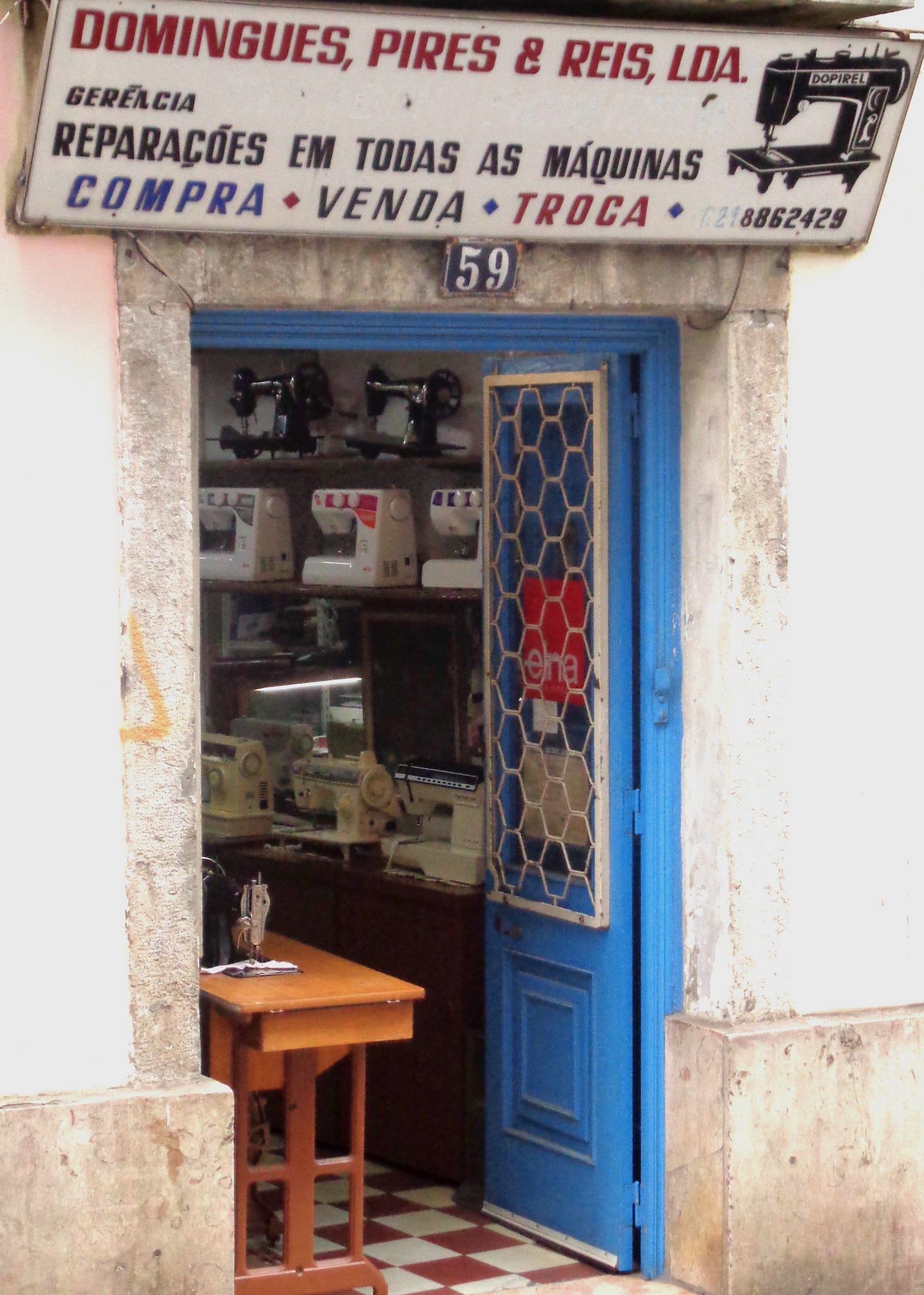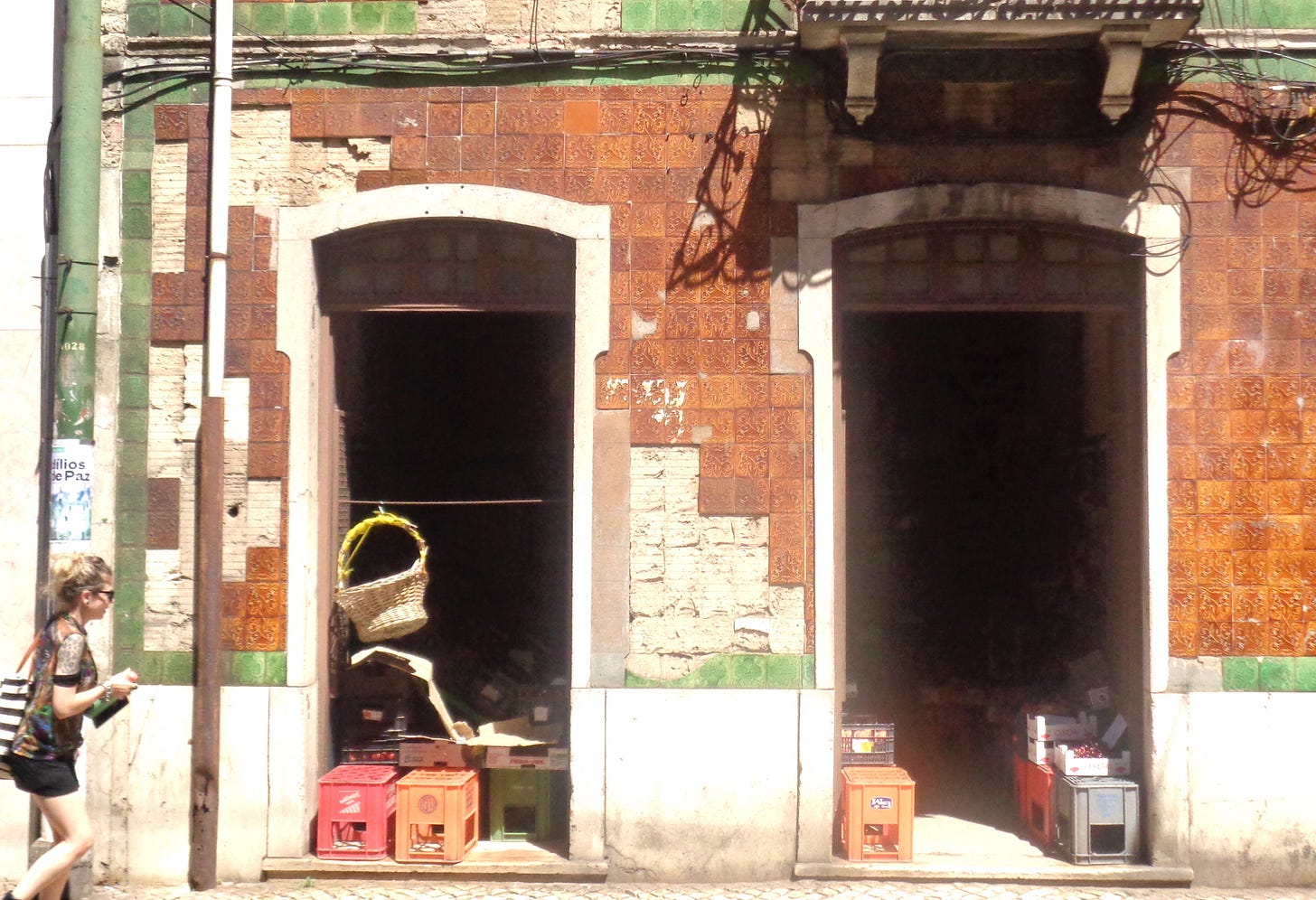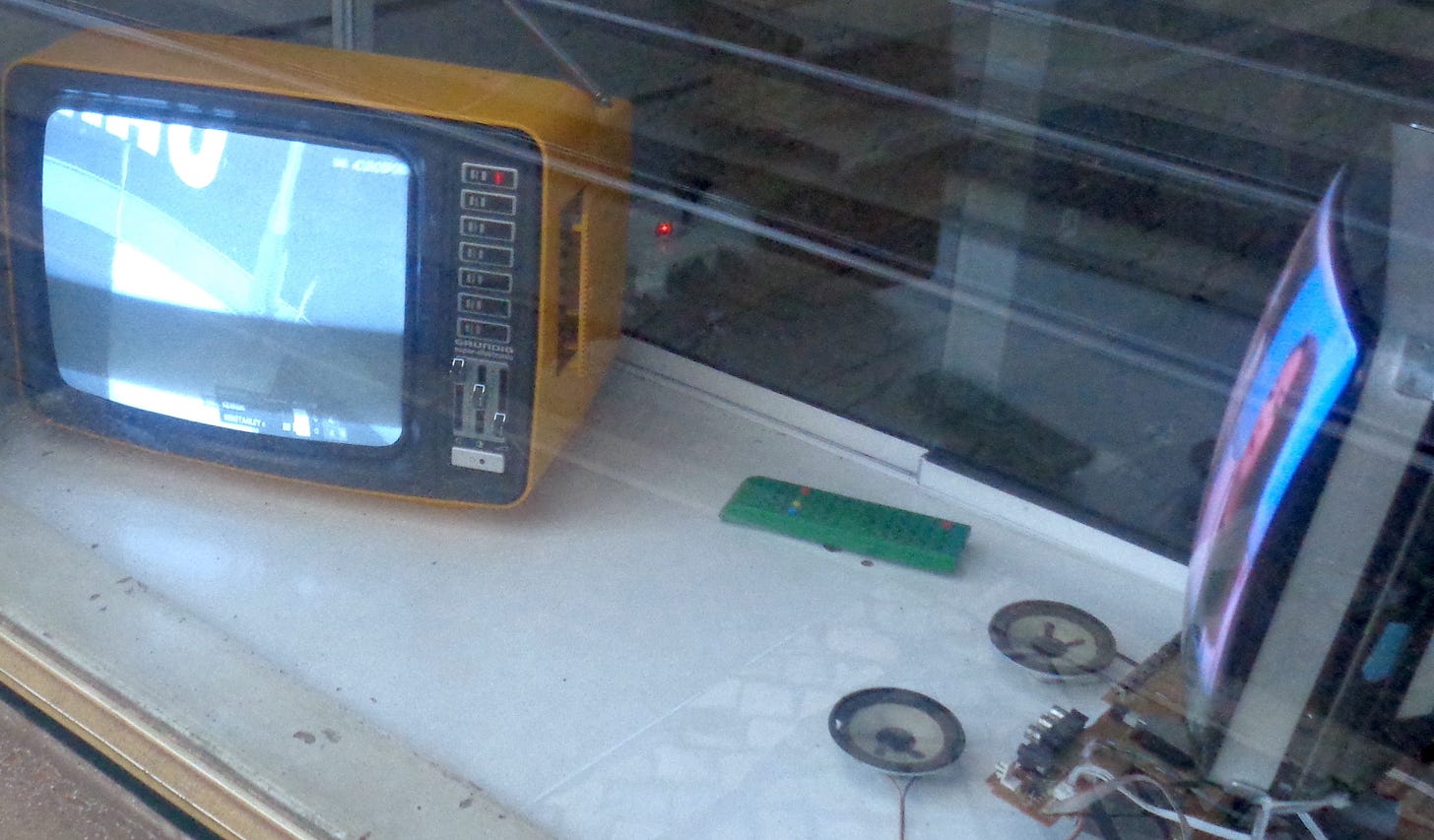Now that I’m coming to the end of my first period in Portugal, I’m taking a look back at the terrain I’ve traversed. It’s a been a long, rich eighteen months, a time that opened up a world I never knew existed before becoming an accidental émigré in late 2020. The tenor of my experience owes a lot to one particular quality of Portugal: its comforting, perplexing old-fashionedness.
This characteristic struck me forcibly as I wandered the streets of Lisbon during my first few days, peering through the windows of shops I thought long vanished into the past. There are clothes shops which cater to a clientele favouring a style of dress I’d describe as The Groom’s Mother at the Wedding circa 1981 and underwear shops where you can discuss cup size and the width of a gusset - I wrote about that IMMEDIATELY - along with dingy emporia stuffed with cosy nightdresses and snuggly blankets. (Few Lisbon apartments have proper heating systems.) I re-discovered displays of digital watches and marvelled at what you could still get repaired:
It was like entering a portal leading back to the Britain of the 1970s and 80s, a lost world I never thought to see again. The presence of these places were testimony to the continuity of life and the cherishing of old values and skills. But as time went on and I discovered the less endearing aspects of this old-fashionedness (such as not being able to open a bank account because I don’t have a ‘certificate of profession’) I began to understand something that had long puzzled me about Portugal: why, as a western European country with such obvious assets, is the country so poor?
These photos are a tribute to the old-fashioned charm of Lisbon and, at the same time, images of a certain stuckness, born of an inability? a refusal? to move on, something which both protects the country from the excesses of modernity and holds it back.
This is one of the many shops you can still find in the centre of Lisbon. The old-fashionedness is not much due to the stock as the signage: there isn’t the money to keep changing things here nor, in a culture less focused than many on image, is there a necessity.
Some months ago, I was talking to a Portuguese woman in her fifties. She was lamenting the loss of many of the shops and small businesses she’d grown up with, a process accelerated by the government-imposed Covid closures. Lisbon had changed so much, she said, and not for the better. I don’t doubt her for a second, but for now at least, here some of them still are - a specialist hat shop:
and the glove shop, complete with summer customer:
I loved the old-fashioned attention to detail in the outfits of these two young women, with their pleated skirts and matching suede court shoes, so much that I stopped and begged a photo. ‘Are you sisters?’ I asked, (just to check). ‘We’re twins,’ they chorused.
I try, but don’t always succeed, to buy my fruit and veg in the warehouse-style shop opposite the supermarket on my local high street:
The produce comes in all shapes and sizes and every transaction is a personal one. More often than not, the elderly assistant ignores the computer screen and tots up the total on a scrap of paper. As I wait, I find myself looking around at the colours and the light and appreciating the moment; something I never do in the supermarket. It’s at times like this I think: Portugal, you are right. Please don’t change!
I love going to the dentist in Portugal. My dentist inherited her practice from her father and the waiting room is furnished in a way that would have seemed old-fashioned even in the 1970s. I didn’t manage to get a good photo of the dim interior, but you can get an idea from the original sign:
Dr Branco has modern equipment, but an old-fashioned approach to patient relationships. During the series of hour-long appointments for my root canal treatment, we would discuss (mouth permitting) the nonsensical times we live in. And when I paid - she charged so modestly that once I negotiated the fee UP - we would swop recommendations for media articles and Portuguese television programmes.
I also enjoy going to the laundrette. It certainly has changed since my student days, and now comes with Wifi, tasteful pop music and a mini-library. I like to try my luck with children’s books in Portuguese while waiting for the drier to finish.
This book gave me a real insight into the sensible-yet-stuck old-fashionedness of Portugal. On one page, the student is asked to circle the most important economic sectors in their region, the first line offering agriculture, animal husbandry, fishing or industry. An exercise in measurement takes dressmaking as an example, something which I learnt at school but is not much more than a hipster hobby in the Britain of today.
The practicality of the primary education system reflects an economy where jobs are hard to get and poorly-paid. Hospitality and tourism is the major source of employment, while internationals needing a job in Portugal generally end up in telesales. I’m pretty sure that the man who brought my sandwich isn’t employed by the cafe where I’m writing this; he probably gets a meal or a few euros for helping out.
A rich western country can also be a throw-away society, and I was delighted to find a TV repair shop for the first time in decades:
But I should have known. As the mystic poet Rumi says: don’t grieve. Anything you lose comes round in another form.

















Thanks for this article and the photos, I like the way you see life around you.